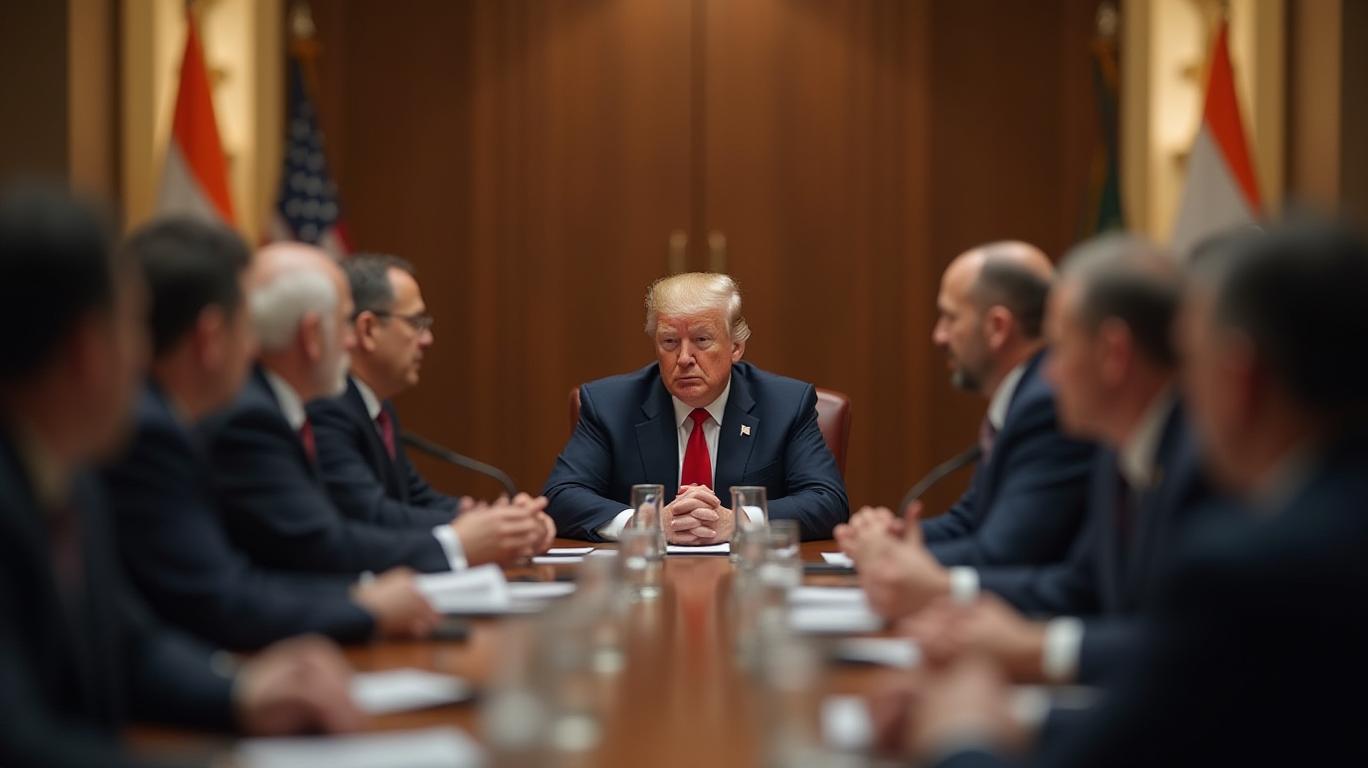India is unlikely to retaliate quickly against Donald Trump’s tariffs, and is focusing instead on negotiating a bilateral trade deal, according to a government official
ByAinvest
Sunday, Apr 6, 2025 6:27 am ET1min read
India is unlikely to retaliate quickly against Donald Trump’s tariffs, and is focusing instead on negotiating a bilateral trade deal, according to a government official
India, amidst the recent imposition of US tariffs, has adopted a strategic approach, prioritizing negotiations over immediate retaliation. According to a government official, New Delhi is focusing on securing a bilateral trade deal with the United States, rather than swift retaliatory measures.The US President Donald Trump announced a minimum 10% tariff on imports, with higher rates for specific products from countries like India, China, and the European Union. India, in particular, faces a 27% reciprocal levy, effective from April 9. While the tariffs have sparked concerns over global trade and economic growth, India is leveraging the situation to its advantage.
The Indian government is closely monitoring the tariff implementation, anticipating higher duties on Indian goods, including agricultural products. The strategy involves studying the potential fallout and exploring new opportunities that may arise from the tariffs. Trade experts anticipate that the US tariffs could serve as a strategic move in bilateral trade talks, potentially enhancing the US's bargaining power.
India is actively engaged with the Trump Administration at ministerial and official levels, aiming to mitigate retaliatory actions. The commerce minister, Piyush Goyal, emphasized that India's tariff policy aims to regulate trade, protect domestic industries, and generate revenue. He added that tariffs on inputs and intermediate goods can enhance the competitiveness of Indian manufacturers.
The focus on a bilateral trade deal aligns with India's long-term strategy to strengthen its trade relationship with the United States. The Department of Commerce stated that discussions are ongoing between Indian and US trade teams for a mutually beneficial, multi-sectoral agreement. This approach aims to enable both nations to grow trade, investments, and technology transfers.
While the pharmaceutical sector remains unscathed, other sectors like jewelry and autos are facing challenges. However, the government is working on front-loading exports to mitigate potential disruptions in demand. The strategy also includes pushing ahead with negotiations for other trade agreements to counter the tariff impacts.
In conclusion, India's strategic approach to the US tariffs demonstrates a calculated response, focusing on long-term trade benefits rather than immediate retaliation. This strategy aligns with India's broader economic goals and positions it as a proactive player in global trade negotiations.

Stay ahead of the market.
Get curated U.S. market news, insights and key dates delivered to your inbox.
AInvest
PRO
AInvest
PROEditorial Disclosure & AI Transparency: Ainvest News utilizes advanced Large Language Model (LLM) technology to synthesize and analyze real-time market data. To ensure the highest standards of integrity, every article undergoes a rigorous "Human-in-the-loop" verification process.
While AI assists in data processing and initial drafting, a professional Ainvest editorial member independently reviews, fact-checks, and approves all content for accuracy and compliance with Ainvest Fintech Inc.’s editorial standards. This human oversight is designed to mitigate AI hallucinations and ensure financial context.
Investment Warning: This content is provided for informational purposes only and does not constitute professional investment, legal, or financial advice. Markets involve inherent risks. Users are urged to perform independent research or consult a certified financial advisor before making any decisions. Ainvest Fintech Inc. disclaims all liability for actions taken based on this information. Found an error?Report an Issue



Comments
No comments yet